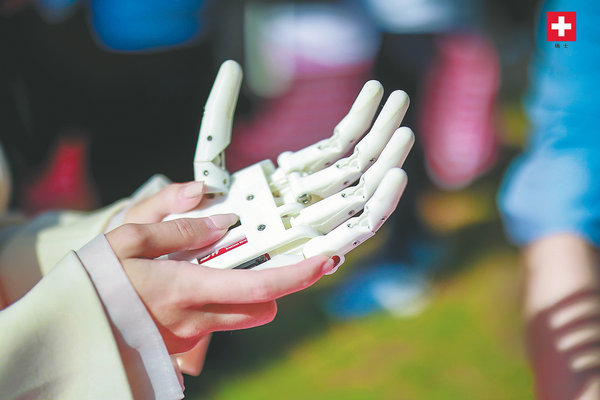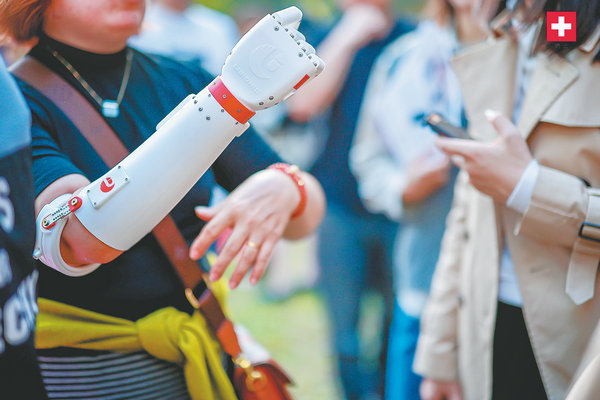Getting to grips with a new hand


At first glance, the tasks may seem mundane. They include hanging laundry and hammering a nail. But if completed successfully they will give the person who carries them out a greater sense of achievement.
These are the tasks that have been chosen to test if artificial hands are up to doing the mundane, and if their recipients can use them efficiently. They will also bring cheer to a number of scientists.
At the Rehabilitation Engineering Technology Department at the Suzhou Institute of Biomedical Engineering and Technology of the Chinese Academy of Sciences, engineers and researchers are busy adjusting a myoelectric prosthetic hand. This is an externally powered artificial limb that the recipient controls with the electrical signals generated naturally by their own muscles.

The Suzhou scientists hope to make it more compatible for Xu Min, who lost her right forearm in an accident in 1992. The 48-year-old woman from Suzhou, Jiangsu province, will wear the hand to compete in the arm prosthesis race tasks in the Cybathlon Challenges in February. The four tasks include hanging laundry, serving food, stacking, hammering and removing a nail.
"These tasks are routine and delicate, by which, I think, the organizers intend to test if the artificial hand can replicate the dexterity and functionality of a human hand," Xu says. She won a top spot at the Cybathlon Challenges in March and if she wins the contest in February, she will be more confident about entering the October global finals — Cybathlon 2024 in Zurich, Switzerland. This is considered the pinnacle event in the sector.
In the previous challenges, Xu was equipped with a robotic forearm prosthesis and completed the tasks — carrying bottles and sweeping up — in the shortest time with no mistakes.
Started by the Swiss Federal Institute of Technology Zurich and held since 2016, the quadrennial event is also known as the "Olympics of assistive technologies".
"Beyond the competition, it is also a technology platform for researchers to exchange ideas, a community of people committed to an inclusive and barrier-free society, a technology transferring opportunity and a public campaign. It aims to create a world without barriers for people with disabilities," Jurg Burri, ambassador of Switzerland to China, said at a promotional event for the competition in Beijing in October, which will attract 160 teams from across the world. Each team is made up of a pilot (with physical challenges) and a technology developer from a university or tech company.
Xu and her team attended the event to demonstrate their latest product and how humans and machines can collaborate.
"The event marks the countdown to the competition, which for me, means pressure to compete with researchers and companies from home and abroad," Xu says, adding that she cannot wait to get the hand ready to start the training.




































